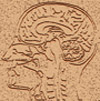
 |
STEVEN JAMES BARTLETT |
THE PSYCHOLOGY OF HIGHER EDUCATION AND BURNOUT AMONG LIBERAL ARTS FACULTY
Steven James Bartlett
Every profession has its own sources of stress and disappointment, and university faculty are no exception. But little attention has been given to the specific nature of the stress and disappointment experienced by those liberal arts university faculty who are committed to a traditional, classical understanding of the liberal arts. These kinds of stress are unique to the profession and have been one of the research interests of the author.
There are two very different reasons for studying sources of stress and especially of disappointment. The usual reason is of course to understand them, perhaps to diagnose them in clinical terms, and perhaps to suggest ways in which they might be avoided or overcome. An altogether different motivation stems from the recognition that disappointment often casts into clearer and more explicit relief the values and standards of judgment that bring about disappointment because reality does not meet them. Our attention then shifts from negative stress and disappointment to the positive values and standards of judgment that lead to them.
A group of four published papers attempts to bring to the reader both a psychological, and sometimes also a historically based, understanding of higher education as seen through the eyes of those university faculty who are drawn to the liberal arts because of a classical appreciation of culture, and who find themselves disappointed by the path taken by American higher education.
At first sight, such an understanding appears critical and evaluative, which it certainly is. However, its purpose goes beyond evaluative criticism and seeks to direct attention to the values and standards of judgment whose application bring about disappointment and yet which serve to define ideal realities of which our society and much higher education today have lost sight.
“Acedia: The Etiology of Work-engendered Depression” directs attention to a variety of depression identified by the author that is due to an exclusionary focus upon work, money, and the things that money can buy. This exclusionary focus has displaced values that traditionally have exerted a liberating and humanizing influence, and has led to an incapacity for genuine leisure and to cultural impoverishment. Acedia, a concept developed by the Scholastics, throws clarifying light on the origin of work-engendered depression.
For a copy of this paper, click here.
“Barbarians at the Door: A Psychological and Historical Profile of Today’s College Students” was published concurrently in the Netherlands and the U.S. The paper reviews the history of higher education in the United States, and identifies prevailing psychological conditions in higher education which that history has encouraged. Together, both this history and the psychological conditions it has brought about progressively undermine the ability of higher education to succeed in communicating and enriching human culture.
For a copy of this paper, click here.
“The Psychology of Faculty Demoralization in The Liberal Arts: Burnout, Acedia, and The Disintegration of Idealism” gives a detailed phenomenological description, on the one hand, of the intellectual and moral life-world of the classical liberal arts scholar, and, on the other, of the university work environment as such a scholar perceives it. Attention is brought to bear on a disability of values, an impairment, which the Scholastics called acedia. Acedia results in an incapacity to cultivate leisure of a specifically liberating form. The daily contact of traditional liberal arts faculty with acedia brings about the demoralization that some university liberal arts faculty experience today. The resulting state of mind is a form of axiological demoralization.
For a copy of this paper, click here.
“The Loss of Permanent Realities: Demoralization of University Faculty in the Liberal Arts” focuses attention on the permanent realities which have traditionally comprised the foundation of liberal arts values. These permanent realities have functioned as the raison d’être of many university faculty in the liberal arts. The paper recognizes that demoralization among these faculty is a second-order phenomenon: It is demoralization due to the encounter between a professional population representing the values of classical culture, and a much larger population whose exclusionary materialism-centered values conflict with and undermine the range of concerns of those in the smaller professional group.
For a copy of this paper, click here.
|
| All materials on this website are protected under copyright, Steven James Bartlett © 2023. Unless otherwise noted, they are offered to the public as free open access publications under the terms of the Creative Commons Attribution-NonCommercial-NoDerivs license. For conditions of use click here. | |